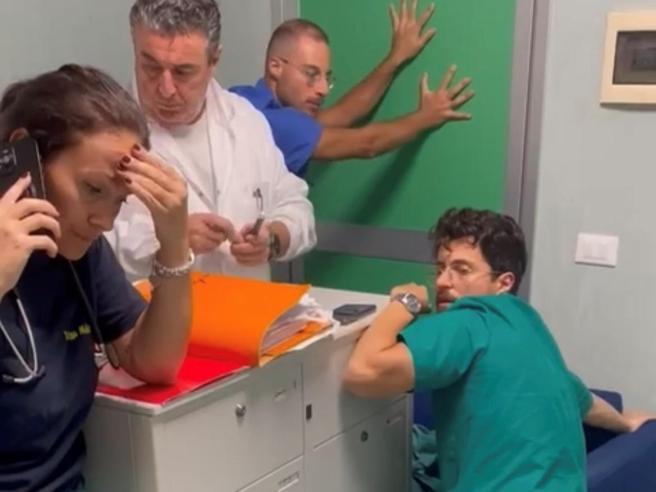At Foggia’s Policlinico, healthcare workers are facing a troubling surge in violence, with multiple attacks reported in just a few days. In the latest incidents, a patient’s son attacked two nurses and a security guard in the emergency room, using a cast-covered arm as a weapon. The previous night, an 18-year-old patient, who had arrived at the emergency room for anxiety, assaulted three nurses before being subdued and arrested by the carabinieri. The young man faces charges of assaulting medical personnel and resisting arrest.
These recent events follow a disturbing pattern of aggression at the same hospital. A few days ago, staff in the thoracic surgery department were attacked by relatives of a deceased patient. A video of the staff barricaded in a room went viral, highlighting the severity of the situation. This summer, similar incidents occurred across Puglia, including attacks on doctors in Minervino di Lecce, Maruggio, Taranto, and Erchie, reflecting a broader trend of violence against healthcare professionals in the region.
In response to the escalating violence, medical unions have declared a state of agitation and planned a major demonstration in Foggia on September 16. The Italian Medical Union (Smi) and other organizations, including Anaao Assomed and Cimo Fesmed, have called for the protest, emphasizing the lack of protection for healthcare workers and the urgent need for a collective response. The Smi had previously suggested controversial measures, such as arming medical personnel, to draw attention to the crisis.
The demonstration has garnered wide support, with medical professionals expressing frustration over inadequate protection and rising aggression. Delia Epifani, regional secretary of Smi for Puglia, highlighted the critical need for a unified response to address the violence that threatens the safety and well-being of healthcare workers. She called for immediate discussions with regional governments and national ministers to develop strategies to combat this escalating issue.
Filippo Anelli, president of the National Federation of Medical Orders (Fnomceo), has suggested that military support may be necessary if the police cannot adequately secure hospitals like the Policlinico Universitario in Foggia. He stressed the need for a strong state presence to restore safety and confidence among healthcare professionals, reflecting growing concerns about the effectiveness of current security measures.

